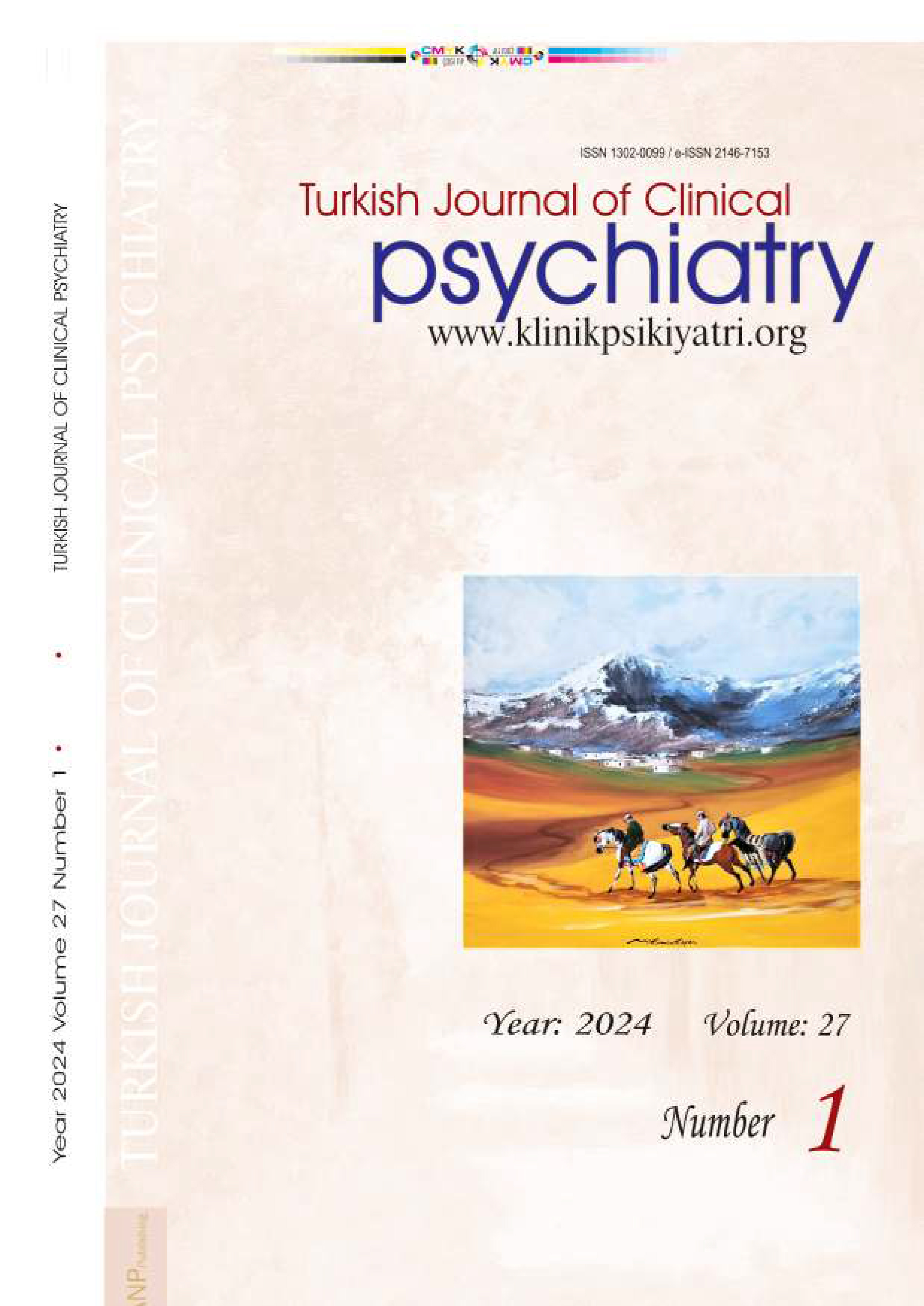





Genetics of Affective Disorders
Ender TANER1, Nevzat YUKSEL21Dr Gazi Universitesi Tip F&kiiltesi Psikiyatri Anabilim Dali, ANKARA2Prof. Dr., Gazi Universitesi Tip F&kiiltesi Psikiyatri Anabilim Dali, ANKARA
First evidences on the role of genetic effect in the etiology of affective disorders were put forward by the family, twin and adoption studies and then effects of genetic have been researched by the means of advanced genetic studies. These researches lead to the development of recent concepts in psychiatric genetics like ‘anticipation’ (increase in disease severity and / or decrease in age of onset in successive generations) and ‘parent of origin effect’. Identification of large intervals oftrinucleotid repeats in affected individuals when compared with control subjects, implicated the role of trinucleotid repeats in the etiology of bipolar disorder which at the same time seems to be the cause of anticipation. It has been shown that morbidity risk is significantly higher in off springs of affected mothers when compared with offsprings of affected fathers which is defined as ‘parent of origin effect’. Linkage analysis has been used to define the chromosomal locations, linkage has been reported on many chromosomes but only the linkage on chromosome 18 has been replicated by other genetic studies. Although the linkages on other chromosomes were not replicated by other studies, they were not denied otherwise. If the bipolar disorder is accepted as a disorder of a complex inheritance, difficulty to find only one or shared chromozomal loci in heterogen samples could be understood. Therfore one chromozomal linkage in one family could not be proven in other families. This limitation could be passed by larger and more homogeneous sample size. Informations in hand indicate that genetic effect is important for affective disorders and encourage for further studies.
Keywords: Key Words: Genetics, affective disorders, anticipation, parent of origin effect, trinucleotid repeats, chromosomes, linkage analysis.
Affektif Bozuklukların Genetigi
Ender TANER1, Nevzat YUKSEL21Dr Gazi Universitesi Tip F&kiiltesi Psikiyatri Anabilim Dali, ANKARA2Prof. Dr., Gazi Universitesi Tip F&kiiltesi Psikiyatri Anabilim Dali, ANKARA
Genetik etldnin affektif bozukluklarm etiyolojisindeki rolii He Hgi- li ilk bulgular, aile, ikiz ve evlatlik gahgmalari He ortaya konmug, daha sonra geligtirilen genetik gahgma yontemleri He genetik et- ki aragtmlmigtir. Boylece psikiyatrik genetik konusunda ‘antisi- pasyon’ (sonraki nesillerde hastabk beklentisinde artma) ve ‘kay- nak ebeveyn etkisi’ gibi yeni sayilabilecek kavramlar bulunmug- tur. Hasta bireylerde kontrollere gore daha fazla genig trinukle- otid tekrariannm saptanmasi, bipolar affektif bozuklugun etiyo- lojisinde bunun rol oynayabilecegini ve buyiik olasilikla da anti- sipasyondan sorumlu olabilecegini gostermektedir. Etkilenmig annelerden gelen neslin, etkilenmig babalardan gelen nesile gore belirgin olarak daha fazla hastalanma riskinin oldugu gosteril- mig ve bu durum kaynak ebeveyn etkisi olarak adlandirilmigtir. Kromozomal lokalizasyonu belirlemek fin baglanti analizleri kullamlmig, bu gekilde birgok kromozom iizerinde baglanti oldugu gosterilmig, fakat sadece 18. kromozomun ilgili lokusu He ilig- kili baglanti diger gahgmalarla da dogrulanmigtir. Diger kromozomal lokalizasyonlarla ilgili baglantilar farkli gahgmalarla dog- rulanamasa da yanhghgi da gosterilememigtir. Affektif hastahk- larm kompleks kalitimla gegen genetik bir hastalik oldugu dilgu- nulurse, eldeld tekniklerle heterojen hasta gruplarmda tek ve or- tak bir kromozomal lokus gosterebilmenin zorlugu anlagilabilir. Bu sebeple bir ailede belli bir kromozomal lokusta baglanti sap- tanabilirken diger ailelerde gosterilemeyebilir. Daha genf ve ho- mojen aile ve hasta gruplarimn olufurulmasiyla bu smirlama a$Aabilir. Eldeki bilgiler affektif bozukluklarda genetik etldnin onemli oldugunu gostermekte ve ilerild galigmalar igin cesaret vermektedir.
Anahtar Kelimeler: Anahtar Sozciikler: Genetik, affektif bozukluklar, antisipasyon, kaynak ebeveyn etkisi, triniikleotid tekrarlari, kromozom, baglanti analizleri.
Manuscript Language: English
(2657 downloaded)










